How David Pleat became one of football's most on-the-ball managers
As his new autobiography reveals, the former Spurs manager has had to overcome not only anti-Semitism but slurs from the tabloid press. Dan Carrier reports
Thursday, 23rd January 2025 — By Dan Carrier
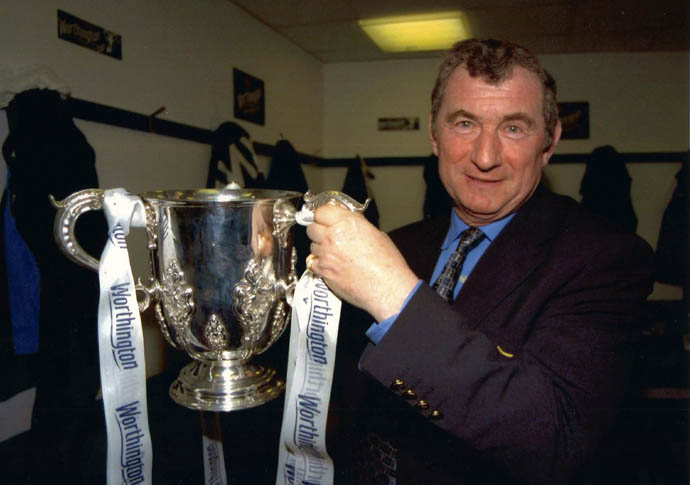
Pleat posing with the League Cup after Tottenham’s win over Leicester at Wembley in 1999 [Author’s collection]
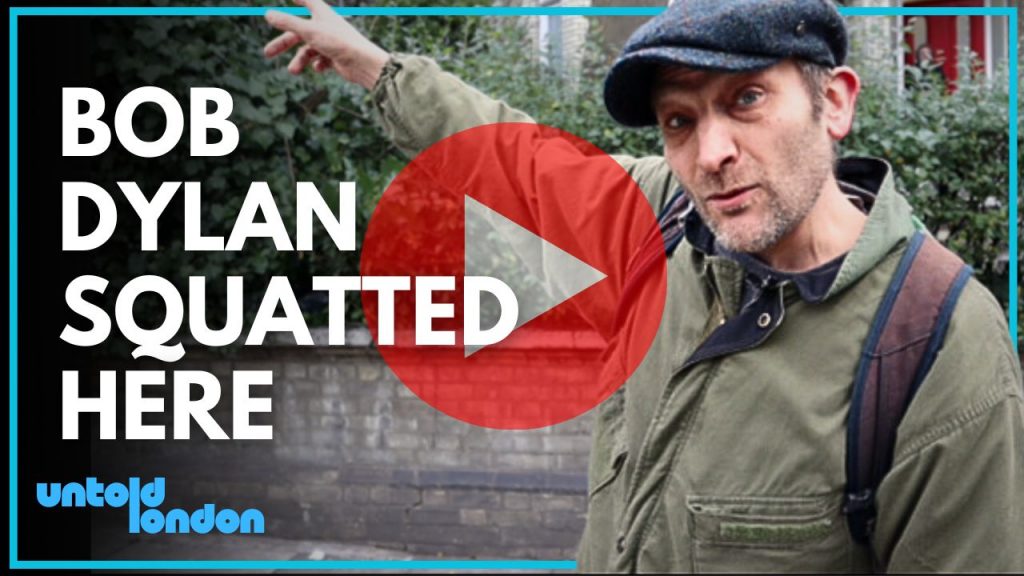
WATCH OUR HISTORY CHANNEL, UNTOLD LONDON, ON YOUTUBE
THE national game is unrecognisable compared to the day David Pleat made his debut in 1956. Players were tied to contracts and a maximum wage. Stanley Matthews was on £20 a week. Fathers took their sons to games clutching rattles and wearing rosettes.
“Hooliganism was unknown and supporters mingled,” writes the former Spurs manager in his new autobiography, Just One More Goal. “The games were played on patchy pitches heavy with mud. There were no agents and no academies.”
When he started as a Nottingham Forest youth player these goalposts, in place since the First World War, were about to fundamentally shift. “As champions, Chelsea had been invited to join a new competition: the European Cup,” he says. “The FA, which had just come to terms with two thrashings handed out by a wonderfully talented Hungary, advised Chelsea to withdraw.
“Has football lost its charm? I think so, but it still remains a beautiful game, a ballet of skill, speed and athletic movement. The job of a league manager is still precious. To be able to control a team and affect its results is a job that attracts addicts, of which I was always one. I have been privileged to challenge some of the game’s most brilliant minds, including Clough, Wilkinson, Atkinson, Kendall, Ferguson and Wenger.”
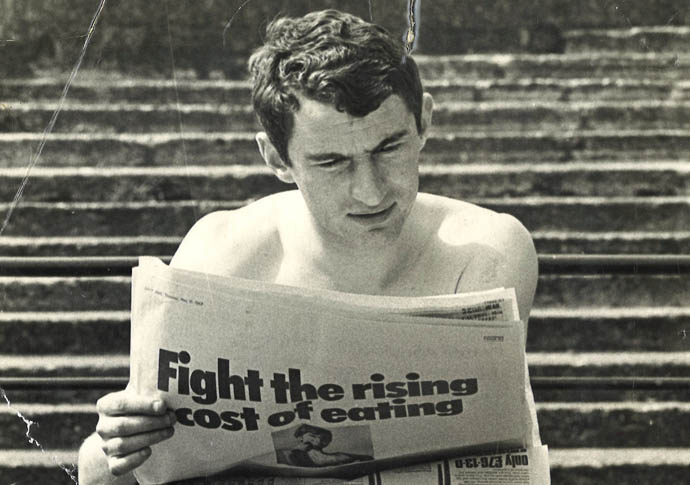
Pleat took a journalism course in Nottingham when he was a player and says he has always been interested in the media
David overcame anti-Semitism and has earned respect as one of the game’s best thinkers. He built a Spurs side with club legend Glenn Hoddle at its heart, blazed a trail in the Premier League as a director of football, nurtured scores of talents who have made a global impact – and has had his career wrecked by the lies of a tabloid newspaper colluding with a vengeful and angry Tory MP.
Pleat was born in Nottingham in 1946. His father was a Jewish East End tailor. A football fanatic as a child, he was Forest’s youngest ever debutant to score, a record that stands today. A winger, he represented England schoolboys at Wembley – he scored there too – before injuries cut his playing time short. His managerial journey saw him start at Nuneaton Borough, take Luton to Division One, manage Spurs and later become its first director of football.
Just One More Goal is a fan’s dream – unfiltered gossip and intelligent takes. It is about how, in a situation of many uncontrollable variables, you can prepare 11 people to achieve a common goal. It has given him a unique take on character, attitude and the obstacles when trying to be the best version of ourselves.
To begin with, managing is about caring for the individual for the good of all. “The squad can play,” he says. “It is about how you get them into a place of confidence. It is about making everyone realise there is one goal and the club is a family facing the rigours of life. You need determination and resilience.”
Managing is a balancing act – building a vision, but being pragmatic with the players available. “You have a philosophy, but it takes time to get the right players,” he adds.“You have to maximise what you have and play in a pattern that suits. You have to fit the player to a jigsaw.
“You need a left foot, right foot, a big man, smaller players, faster players, a solid captain and a front man who scores goals.”
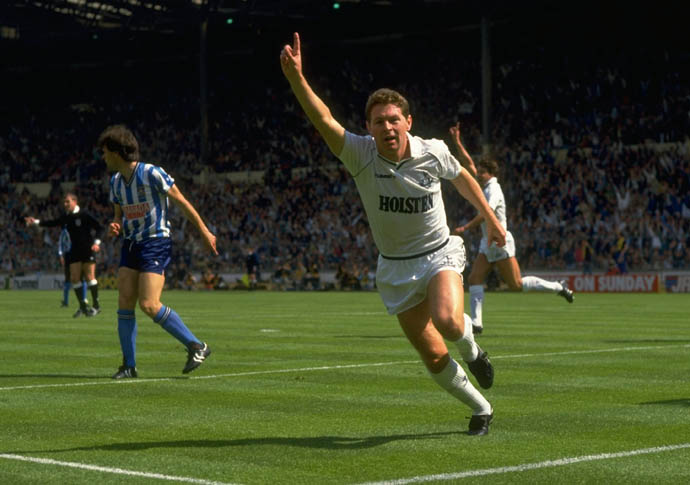
Clive Allen opens the scoring for Spurs in the epic 1987 FA Cup final against Coventry [David Cannon via Getty Images]
He knows the qualities he looks for in a captain. “My most successful captain was Brian Horton,” he recalls.
“He was 32 when I bought him for Luton from Brighton. We turned him from a box-to-box midfielder to a holding player – a vital position, protecting the centrebacks and a conduit between defence and attack. I like the captain to be there. He had the trust of all.
“A captain needs to be respected for his sense, humour and integrity. You want reliability, an eight out of 10 every week.
“People have good games, bad games, but your captain needs to show up. Harry Kane was tremendously consistent. Gary Mabbutt was a great leader. It boils down to character,” he adds.
His success at Luton put him on Tottenham’s radar, and he replaced Peter Shreeves in 1986. “I remember a misquote in a newspaper, that said I’d said it was like going from fish and chips to smoked salmon,” he says. “They were good at Luton. But it was wonderful working with the likes of Ossie Ardiles, Glenn Hoddle and Chris Waddle. They gave you so much satisfaction.”
The Premier League is watched around the world, played by international players for clubs owned globally. “The pathway for English youth is difficult,” he says. “Has the Premier League raised standards? It may have done at the highest level but it hasn’t necessarily helped lower leagues.
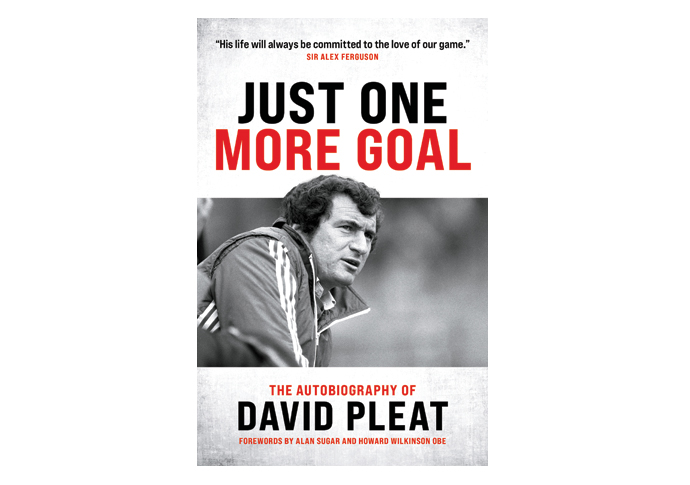
“Younger English players were expected be passed down to lower leagues to gain experience, if they were not making it at Premier clubs. But that has not happened. The lower divisions are physically tough and managers cannot afford to blood youngsters.”
David does not shy away from the darkest moment of his career – the day he became the victim of tabloid lies. In the autumn of 1987 when someone from the Sun knocked on his door. “They explained they were about to run a story that I had been cautioned by the police for kerb crawling,” he writes. “I was frozen on my doorstep. My mind began reeling, to try to imagine what they were talking about.”
Police surveillance cameras had seen him three years previously driving down Kenilworth Road, where Luton’s ground is based. Kenilworth Road is in the middle of Luton’s red light district.
“If you left the ground late, you would have a knock on the car window at the traffic lights,” he remembers. “My car was easily identifiable. I had a personalised number plate.” A dodgy police officer sold the information to the Sun.
“The story was on the front page, accusing me of consorting with prostitutes,” he said. “It was a salacious farrago of inventions. I had never been arrested, let alone charged.”
A storm erupted with tabloids questioning David’s fitness to be a manager. Then Terry Venables left Barcelona, giving Spurs a Plan B.
A second incident was the final straw. David was stopped en route to a TV interview by a police officer, who accused him of acting “suspiciously”. It appeared on the Sun’s front page the next day. David was fired.
David writes he believes he was stitched up by the Luton Town chairman and Tory MP David Evans. Using contacts in journalism and friendly police, he claims he has found a link.
David writes: “Like a detective, the pieces of this ugly jigsaw fell into place. I could see Evans now, turning towards me on the day he had failed to prevent me joining Tottenham, shouting: ‘You’ll pay for this.’ I paid, and my family paid, a terrible, grievous price.”
• Just One More Goal. By David Pleat. Biteback Publishing, £17.99
• David Pleat is in conversation with former Arsenal executive David Dein at the JW3, Finchley Road, on Monday January 27, 7pm. See jw3.org.uk